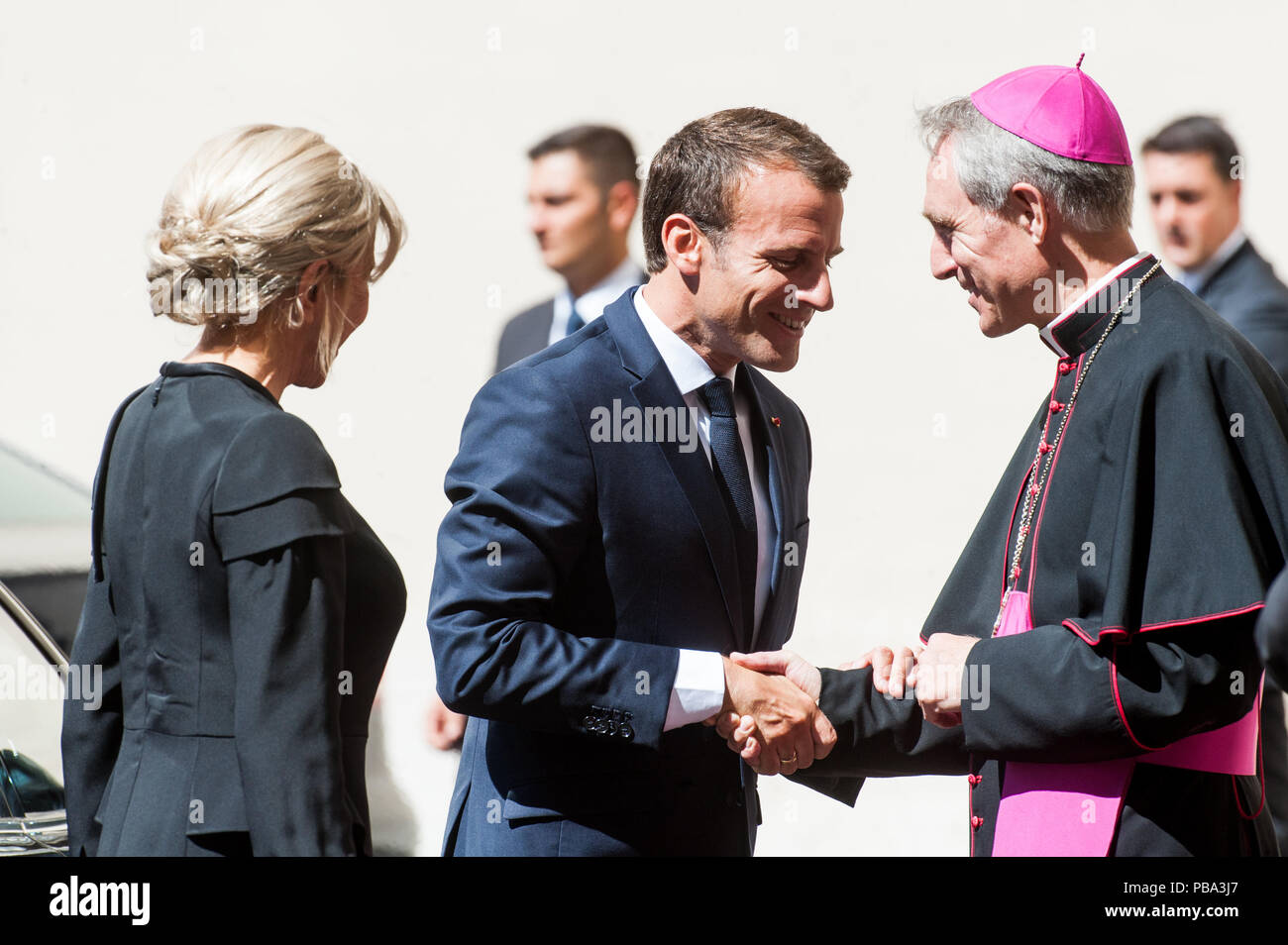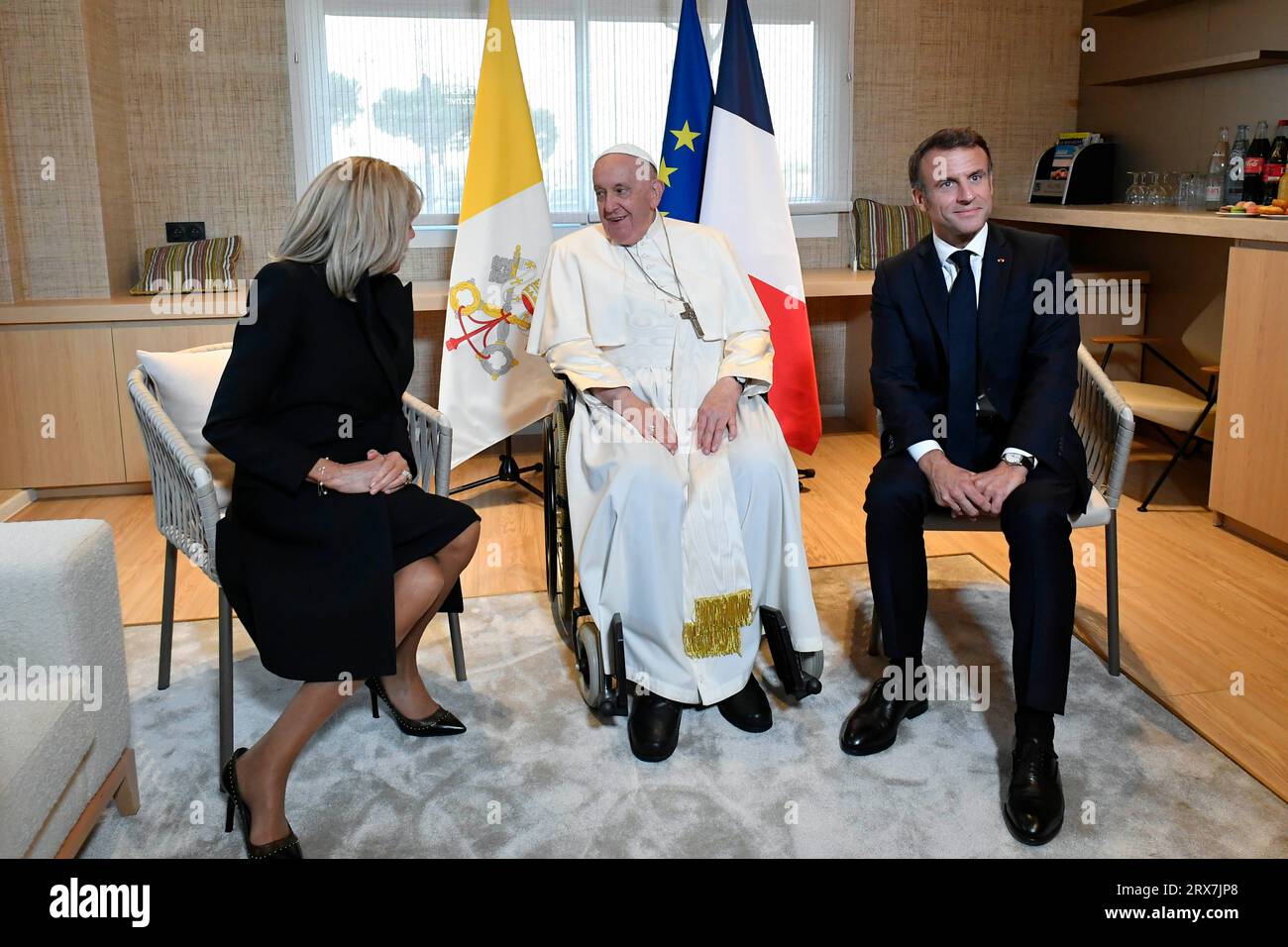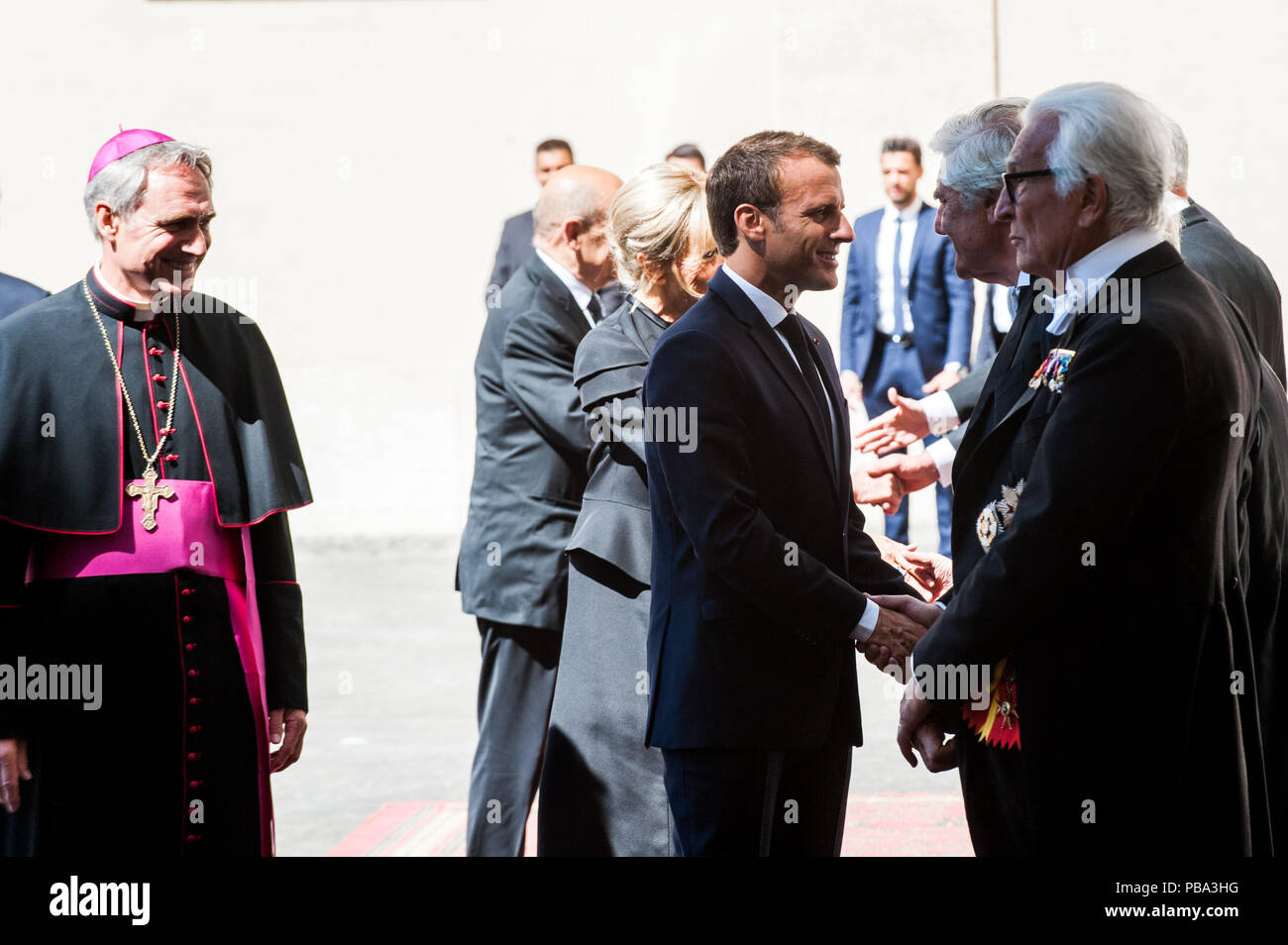Was the reopening of Notre Dame Cathedral on Saturday more than just a religious event, but a public display of faith and political maneuvering? The sight of Brigitte Macron, the French Presidents wife, receiving the Eucharist despite being divorced, has sparked both curiosity and controversy, raising questions about the intersection of faith, personal life, and the role of the French government in matters of religion.
The grand reopening mass at Notre Dame Cathedral, a symbol of Frances cultural and religious heritage, drew significant attention. The presence of President Emmanuel Macron and his wife, Brigitte, was, of course, anticipated. However, the focus quickly shifted to Brigitte Macron's participation in the Eucharist, an act that, for some, raises questions about her adherence to Catholic doctrine, given her marital status. This event offered a window into the complexities of faith within the context of modern politics, further highlighted by the seemingly significant role the French government played in the cathedral's restoration, a role that has raised eyebrows amongst American Catholics.
| Attribute | Details |
|---|---|
| Full Name | Brigitte Marie-Claude Macron (ne Trogneux, formerly Auzire) |
| Born | April 13, 1953 (age 71) in Amiens, France |
| Education |
|
| Marital Status | Married to Emmanuel Macron |
| Previous Marriage | Andr-Louis Auzire (divorced) |
| Children | 3 children from her previous marriage (Sbastien, Laurence, and Tiphaine Auzire) |
| Occupation | Former French Literature Teacher |
| Current Role | First Lady of France |
| Significant Roles & Responsibilities |
|
| Political Influence |
|
| Other Notable Facts |
|
| Reference | Official Website of the lyse Palace |
The influence of the French government in the restoration of Notre Dame has raised eyebrows. President Emmanuel Macron, who gave the final approval for the project, has been a visible presence throughout the process, underscoring the state's commitment to the cathedral's revival. Some American Catholics, observing this, may have wondered about the extent of this involvement and the implications of a government playing such a prominent role in a religious endeavor. The financial resources, the logistical support, and the overall management of the restoration are all areas where the French government has exerted its influence, prompting questions about the balance between secular governance and religious institutions.
Emmanuel Macron, though a Roman Catholic himself, has not always been a regular participant in religious practices. He has, however, expressed respect for all religions and maintains a reflective stance on his faith. This duality a respect for religious traditions coupled with a reduced personal practice is a key aspect of understanding his approach. The way he has chosen to balance his religious views and government policies has drawn significant attention, especially with critics who suggest he is blurring the lines that traditionally separate the French government from religious intervention.
Brigitte Macrons connection to Catholicism is a complex matter. While she hasnt publicly broadcast her religious practices, her past involvement in Catholic traditions, including her attendance at the Notre Dame reopening mass, does point to a continued personal connection to the faith. Her comments in interviews regarding the influence of spiritual values on her character and actions give further insight into her perspective. The context of her faith is intertwined with her role as the wife of the President, making her actions all the more scrutinized.
The couple's close relationship has been a hallmark of their public life. They've been married for nearly two decades, but their connection extends back even further. This enduring bond has seen Brigitte Macron often accompanying Emmanuel Macron on official trips and events. Beyond this, she plays an active, influential role in his political career, offering strategic advice and helping craft his speeches. The dynamic between them is one of mutual support and consultation, which further deepens public interest in their private lives.
On Tuesday, President Macron was scheduled to meet with Pope Francis at the Vatican. Such meetings always hold symbolic weight, especially in the context of his domestic policies on matters of faith and the nation's relationship with the Catholic Church. This meeting provides an opportunity for dialogue on a wide range of issues, potentially covering topics of international relations and values shared by the Vatican and the French government.
The reopening mass saw a gathering of prominent figures. The Archbishop of Paris, followed by President Macron, Brigitte Macron, the First Lady of France, and the Mayor of Paris, Anne Hidalgo, all played a role in the proceedings. This collective presence served as a symbol of national unity, while underscoring the importance of Notre Dame in the cultural and religious fabric of France. The involvement of so many high-profile officials amplified the significance of the event on a national and potentially international scale.
Brigitte Macrons career as a teacher, specifically her background in French literature, shaped her in many ways. Before her role as the First Lady, she taught in high school and college. This provided a foundational role, and she continued teaching in her hometown. This background gives her perspective, and has helped her husband when it comes to his speeches and public appearances, providing her with a unique understanding of both language and the subtleties of public perception.
The controversies around the Macron's family don't go unnoticed. From the Archbishop Carlo Maria Vigan to other public voices, the actions of the couple are under the eye of scrutiny. This attention on the Macrons personal lives is just one aspect of the complexity surrounding the intersection of religion, politics, and personal morality in contemporary France. The events and the perspectives offer a glimpse into the ongoing debates about the role of faith in public life.
The ongoing investigation into the identity of Brigitte Macron is still under scrutiny, as it provides a look at all the questions and the public interest in the personal lives of public figures. The reopening mass at Notre Dame and the couple's actions have served as catalysts for introspection and debate, adding to the ongoing discussion around the values, beliefs, and influences that shape the country's leaders.
The participation of Emmanuel Macron, along with his wife Brigitte at Notre Dame has brought attention to both the political and personal sides of life in France. It has become a moment that reflects the nuances of faith, politics, and their intersection. The reactions and discussions that have followed are a testament to the impact of events at the cathedral and the questions they raise about the people involved.


